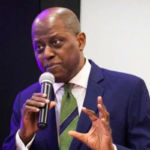There is clearly beyond doubt consent on Nigerian banks healthiness going by the recent media report of over N489 billion borrowed by commercial banks from the CBN. Explicably, the Central Bank of Nigeria (CBN) has always maintained that, Deposit Money Bank (DMB) is resilient, safe, and sound in Nigeria.
In one of the apex bank’s statements, through its Corporate Communications Department, it noted that the “Nigerian banking system had proven to be very sturdy in spite of the global challenges posed by the COVID-19 pandemic”. In addition, the statement said “in line with the bank’s resolve to ensure adherence to prudential standards, the CBN continues to monitor the activities of banks in order to ensure that no individual or institution breaches laid down guidelines.”
- Court ruling won’t prevent agreement’s implementation – Ngige
- PODCAST: Should citizens take up arms to protect themselves?
Ultimately, we can fathom this proactiveness of the banker of all banks push to make clarifications on the financial robustness of the Nigerian banking system to avoid public panic.
Meanwhile, the statement assured the public by explaining that “routine examination and stress test for financial institutions operating in the country indicated that no licensed DMB was under any form of financial distress. And that the banks have adequate capital to absorb unexpected losses”.
In retrospect, banks’ borrowing from the CBN through the Standing Lending Facility (SLF) fell by 98 per cent, year-on-year (YoY), to N15.95 billion in November 2020 from N662.44 billion in November 2019.
Curiously, banks’ borrowing from the CBN rose to N489 billion in second quarter 2021. Whereas, the banks’ deposits with CBN also declined significantly. Nevertheless, banks borrow from the CBN through its Standing Lending Facility (SLF) to fund short-term liquidity cash shortfall is a reflection of the intense scarcity of funds.
Interestingly, what is causing the increased borrowing from CBN by banks was driven by the intense liquidity squeeze that prevailed in the interbank money market. Intriguing also is that this scarcity of funds originated from huge outflows compared to inflows into the DMBs?
Nonetheless, findings from the CBN’s data show that while banks’ borrowing through the SLF rose sharply by 174 per cent in April 2021, their deposits with the apex bank through the Standing Deposit Facility (SDF) fell by 57 per cent to N169.74 billion in April from N392.37 billion at the end of March 2021.
Similarly, the one-sided average interest rate for collateralized lending Open Buy Back (OBB) in the interbank money market rose to 32.63 per cent on April 16, the highest in two years, before retreating to 14.58 per cent in April.
Grippingly, what does the foregoing depict of the Nigerian banking system today? First, is that the scarcity of funds dampened confidence in the banking system that has been adjudged by the apex bank as sturdy with resilient, safe, and sound. Secondly, banks and financial market activities in Nigeria are hampered by the pressure of double-digit money market rates. Thirdly, the tight system of liquidity impacts the secondary market for treasury bills as supply outweighed demand leading to decline in average prices while yields went up.
These developments, of banks spiral borrowings from CBN can be attributed to the fallout consequent on the purpose the monetary policy of the CBN is aimed at pushing up interest rates on treasury bills. On the other hand this practice by the CBN is an effort to attract investment and patronage of treasury bills from the public.
Consequently, this stands to reason to be counter-productive of a sort as it takes from one side to reward the other. Giving this insight, our monetary policies must stand to benefit all irrespective of the angle of investment it comes from, with an overall positive impact on our strategic national economic interest.
Indeed, the concerns over banks’ borrowing from the CBN can be described as a fault line that monetary economists have always preserved to be healthy if well managed. Arguably, this could also mean the ingenuousness of the system to forecast. Chiefly, if we consider the structural weaknesses in Nigeria’s economy, and the cunning trait of man.
For the reason that we are in a country that grapples, and does not get a clear vision on what its economy holds, monetary policies sometimes do not usually translate to expected desired growth, that is why policy in this sector will look like fiction with impute response and reluctance from players and regulator. Either to adhere to rules or abandon them for another as the method of switching to novel ideas trending, even though it may not fit local aspiration but as long as it is globally accepted by monetary capitalist institutions and others. We jump on the train and this could directly impact the attractiveness of our national economic sector, while we keep bearing the cost.
In due course, however, irrespective of the above divergence, the CBN should defend the Nigerian economy from the monetary policies angle. Interestingly also analysts, experts and researchers alike must not shun from advising the apex bank and government to maintain activate monetary and fiscal policies that would guarantee healthy banking system in Nigeria.
Similarly, the import of monetary policy that has negative shock has become such a habit that affects long-term commitment to protecting the naira. It is not a matter of debate but practice. Besides, Nigeria needs to use holistic monetary policy to create opportunities and change the narrative around its banking system.
Adefolarin A. Olamilekan is a political economist and development researcher




